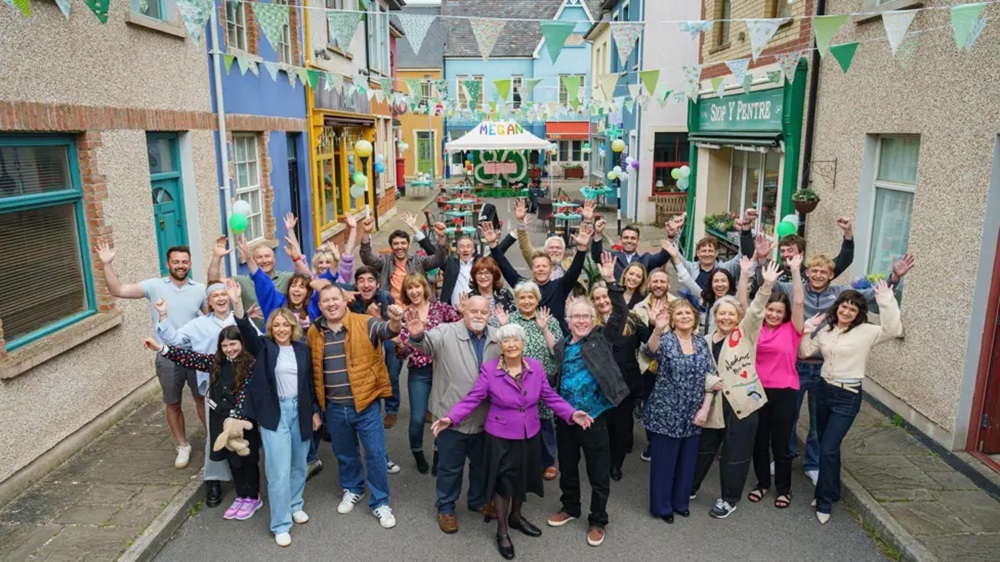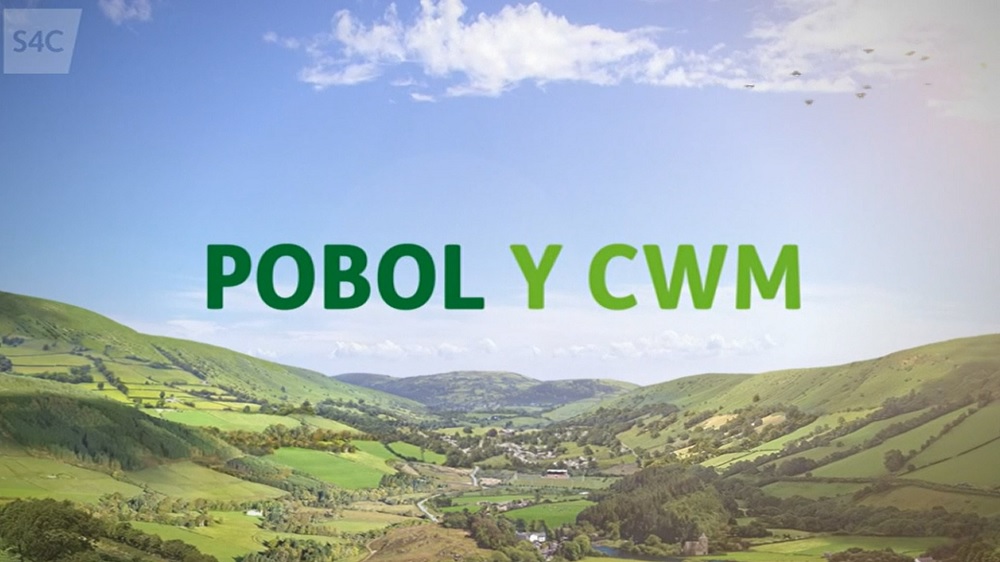In search of Welshness on the set of Pobol y Cwm

Derec Jones
It’s 50 years since the first episode of Pobol y Cwm was aired.
More than 25 years ago I’m in the Green Room at the BBC in Cardiff rehearsing with two legendary actors, Huw Garmon and Sue Roderick, who play Steffan and Cassie on Pobol y Cwm. I’m only a non-speaking extra, but the director has given me a few lines. I’m sweating but my mouth is dry, my short-term memory is in bits and we’re on set in a few minutes – HELP! My quest for Welshness has landed me in this mess.
Back then I didn’t know who I was, neither fully Welsh, nor, god forbid, English. Defining myself as merely British wasn’t good enough, I wanted a definite cultural and national identity, I wanted to be Welsh. So, my quest for Welshness began.
It’s a long journey and I don’t even know if it’s possible to get to the end of it, after all, R S Thomas has made a career out of the dichotomy of being a non-Welsh Language writer, yet having the heart of a true Welshman. Is it possible to be truly Welsh if you’re not completely fluent in the language?
Things defined by the word Welsh surround us, but that word can carry a huge load of nuance and self-doubt for us poor Welsh people who are not masters of the ‘language of heaven’. It’s not easy to learn Welsh as an adult, even for someone whose wife is a true Cymraes, and whose children were educated in Welsh Medium schools.
If I had to nominate one single motivating factor in my quest for Welshness it would be Pobol y Cwm. I’ve watched the programme from my sofa forever, first with the English subtitles, then with the special page 889 subtitles for Welsh learners, and finally without subtitles, pretending I understand more than I can, but getting the gist of it anyway.
I was born in Wales, of Welsh parents and I now live in a typical Welsh village, in a house called Llwyncelyn (Hollybush), so I thought that learning Cymraeg would be a relatively easy step to take. But, sitting in the Green Room with these great Actorion, I’m beginning to regret getting off the sofa.

It’s not just Pobol y Cwm. It’s cool to be Welsh now, but more than that, it’s the cywilydd (shame), the feelings of failure, the isolation that chills your soul when you realise your friends and family share a secret you’ll never be privy to.
We come together on International days, when the media, in both languages drives home the message that all Welsh people are equal around the oval ball. But what happens after that? The language factions go their separate ways, back to the sheep, the committee rooms or the tidy little jobs in the media; back to the council estates, the factories or the male voice choirs.
I’m not bothered about rugby or male voice choirs, and I’m certainly not bothered about sheep, but I’m still Welsh. I’m as Welsh as Shirley Bassey or Bryn Terfel. I’m as Welsh as William Morgan or Ieuan Evans. I’m as Welsh as they come. Why then do I need to chase the buzz that comes from carrying out even the simplest conversation in Welsh? The Welsh Language Society and the Welsh Language Board have certainly done their job on me over the years. I now carry an extra burden of guilt that can only be unloaded when I achieve that altered state of being a confident Welsh speaker.
On the low seats in the Green Room, in the depths of the BBC, I’m nodding at the director as he gives me the lines. I’m a publican from Llanelli who’s come to buy beer from Steffan’s brewery, but the real story is about Steffan’s preoccupation with some woman. I’m just a prop.
When I get on set the problems really begin, I’d scribbled the lines the director gave me on a copy of the script, then, just before the cameras roll, a production assistant speaks to me in Welsh and steals my script. I nod and smile, I don’t have a clue what they’re talking about. I garble my way through the scene, and run out of the studio back to the car park, despairing at my performance and relieved that it’s a wrap. They cut all but two of my lines anyway.
I’m still desperately waiting for Welshness. My language skills have improved, I even choose the Welsh language option at the cashpoint. The burden is a bit lighter but It’s a long journey this quest, and Steffan is still searching for love.
I’ve done a bit more television work since, but nothing in Welsh, they must have sussed me out and blacklisted me, but don’t worry, Pobol y Cwm, I’ll be back and I’ll play the best silent publican you’ve ever seen.
Derec Jones originally wrote this piece 25 years ago. He rewrote to celebrate Pobol y Cwm’s 50th birthday
Support our Nation today
For the price of a cup of coffee a month you can help us create an independent, not-for-profit, national news service for the people of Wales, by the people of Wales.





